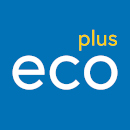
Plastic Cycle
The idea of a circular economy is that our economic system could function like a natural ecosystem. In such systems, no waste is generated. If a by-product is created in one process, it is used again in another process. With the circular economy package passed in 2018, the European Union took up this vision and gave the plastics industry ambitious targets: By 2030, 55% of all plastic packaging and 60% of all municipal waste in the EU member states should be recycled.
The Plastics Cluster took action early on to promote circular economy concepts that are not limited to “downcycling”, but also provide material for high-quality applications. It was determined how recycling materials can be tailored to specific applications and processing methods by selecting the starting material and compounding it with suitable additives. The recycling of plastic fibers was also explored early on. These pioneering projects can now be built upon when it comes to a comprehensive transformation of the plastics industry towards a circular economy in view of the requirements of European legislation.
Numerous building blocks have already been developed along this path:
- The “Rec2Tec Part” project started with concrete components made of plastic and optimized recycling materials based on the requirements that exist for these components.
- Competences from the plastics and textile industries came together in the PlasTexTron network, which was co-initiated by the cluster. Both sectors joined forces in the “Tex2Mat” project to develop new approaches for closed cycles of plastic fibers.
- The “PolyCycle” project investigated the extent to which recycled polyolefins can be used again for the production of food packaging.
- In the “Pack2theLoop” project, the focus is expanded on post-consumer packaging in general and the quantities and quality of collected plastics are compared with the requirements of the processing companies.
In the course of these activities, the cluster has created a wide-ranging network consisting of scientific institutions (Montanuniversität Leoben, TU Wien, University of Natural Resources and Life Sciences, OFI, FH Campus Wien, ...), companies from the fields of plastics production, compounding, processing and application as well as experts in waste management and circular economy.
While a well-developed collection and recycling system has already been established for individual types of polymers such as PET, there are still considerable challenges in closing cycles for most other plastics, both in terms of the quantities collected and the differences between the required and existing qualities. In 2021, the cluster played a leading role in founding the “Österreichischer Carbon Cycle Circle” (ÖCC2). One of the first activities of the network was to draw up an overall balance of plastic flows in Austria as part of the “Facts Matter” study.
Examples:

